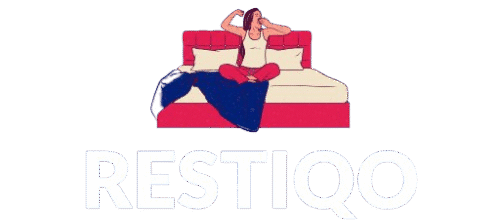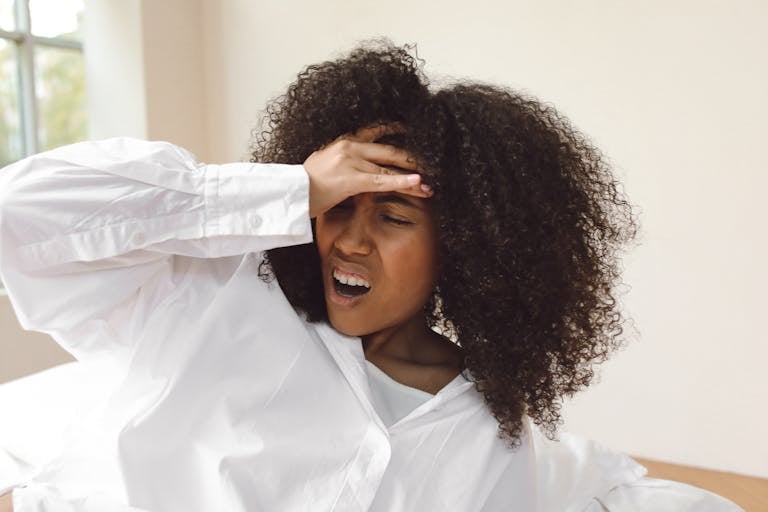
You don’t need to be a neuroscientist to know this: when you sleep like crap, you work like crap. But what most people don’t realize is how fast the productivity debt from poor sleep racks up — and how easily you can start buying it back.
A recent CDC report estimates 1 in 3 adults don’t get enough sleep, and research ties chronic sleep loss to over $400 billion in lost productivity in the U.S. alone every year. That’s not just bad for business — it’s wrecking your focus, mood, willpower, and decision-making every single day.
This guide isn’t some fluffy wellness piece telling you to drink chamomile tea and wear a sleep mask. It’s a practical, science-backed blueprint for busy professionals who want to work sharper, think clearer, and perform at their peak without burning out.
In this sleep and productivity guide, you’ll discover:
- How sleep affects productivity at a biological level
- Common sleep mistakes you’re probably making (and how to fix them)
- Actionable, proven sleep hacks for high-performers
- How better sleep directly boosts focus, creativity, and resilience
Let’s get to it.
Why Sleep Is the Most Underrated Productivity Tool
We’ve been sold a toxic lie: hustle 24/7, sleep when you’re dead, and success will follow. In reality? Chronic sleep deprivation makes you slower, dumber, moodier, and prone to terrible decisions — the exact opposite of what productive people need.
Consider this:
- The U.S. economy loses about 1.2 million workdays every year due to insufficient sleep.
- Workers who sleep less than 6 hours a night are 20–30% less productive than those getting 7–9 hours, according to the RAND Corporation.
The benefits of sleep for productivity aren’t just about feeling rested. Quality sleep improves:
- Mental clarity and problem-solving speed
- Emotional regulation under stress
- Creativity and idea generation
- Energy management and physical stamina
And no — chugging more espresso won’t replace what your brain misses during deep and REM sleep cycles. It’s time to debunk the “sleep is for the weak” culture and treat good sleep like the high-ROI performance enhancer it is.
The Science of How Sleep Affects Focus and Performance
What Happens to Your Brain on 4-5 Hours of Sleep
Operate on less than 5 hours of sleep and your brain reacts like it’s legally drunk. Studies published on sleepfoundation.org show that cognitive functions like reaction time, memory recall, and decision-making plummet with even mild sleep loss.
Your prefrontal cortex — the command center for logical reasoning and impulse control — gets sluggish. Meanwhile, your amygdala (the emotional fear center) goes into overdrive, making you irrational, irritable, and reactionary. Not exactly the mindset for boardrooms, deadlines, or high-stakes decisions.
The Productivity Powerhouse: Deep and REM Sleep
Sleep isn’t one monolithic state — it’s a cycle, and the deep sleep and REM phases are your productivity cheat codes.
Deep Sleep (Slow-wave sleep):
- Repairs muscle and tissue
- Boosts immune function
- Recharges energy stores
REM Sleep:
- Strengthens memory consolidation
- Enhances creative problem-solving
- Processes emotional experiences
Disrupt these stages — whether from late-night emails or poor sleep hygiene — and your productivity takes a hit you can’t caffeine your way out of. As Dr. Matthew Walker, author of Why We Sleep, warns: “There is no biological system your sleep doesn’t affect.”
Common Sleep Mistakes Busy Professionals Make
Most people overcomplicate sleep fixes with fancy gadgets and gimmicks. Truth is, it’s often your daily habits wrecking your nights.
Here’s what’s probably sabotaging you:
- Caffeine too late in the day. Caffeine has a half-life of 5-7 hours. That 3 p.m. Americano? Still in your bloodstream at 9 p.m.
- Over-relying on blue light filters but ignoring natural light exposure. Blue light blocking glasses are fine, but if you’re not getting 10–20 minutes of sunlight in the morning, your sleep-wake cycle stays confused.
- Training late at night. Evening HIIT or intense weightlifting spikes adrenaline and body temp, delaying sleep onset.
- Weekend sleep “catch-ups.” You can’t repay a week’s sleep debt in a Sunday sleep-in. It wrecks your circadian rhythm.
- Obsessing over gadgets while neglecting basics. Who cares about your $400 sleep tracker if your room’s too hot and you’re doomscrolling until midnight?
Proven Sleep Hacks for Busy People
Sleep Scheduling Tricks for Irregular Routines
If you can’t control your wake-up time, lock down your wind-down time. Even a 30-minute consistent evening routine signals your brain it’s time to power down.
Pro hacks:
- Set a phone alarm for “bedtime” (not just waking up)
- Use dim red lighting after 9 p.m. to cue melatonin
- Avoid Netflix binges on work nights; one episode always turns into three
Bedroom Setup for Deep, Distraction-Free Sleep
Your bedroom should feel like a cave — dark, cool, and quiet.
Optimize it with:
- Blackout curtains or an eye mask
- White noise or pink noise machines (or apps like Noisli)
- Keep temp between 60–67°F for optimal deep sleep
Bonus: Move chargers and screens out of reach. No late-night email doomscrolling.
Smart Supplementation: What Works, What’s Junk
Some supplements help — others are Instagram snake oil.
Worth considering:
- Magnesium glycinate: Eases anxiety and muscle tension
- L-theanine: Calms the nervous system, especially when paired with a small dose of melatonin
- Glycine: Lowers core body temp for faster sleep onset
Avoid:
- High-dose melatonin. 10mg mega-doses backfire. Stick to 0.3–1mg if you use it at all.
Quick Stress-Down Techniques for Better Sleep On Demand
When your brain won’t shut up:
- Box breathing: 4–4–4–4 count inhale, hold, exhale, hold
- 5-minute body scan meditation (use apps like Insight Timer)
- Legs-up-the-wall pose (Viparita Karani) for 10 minutes
No, you don’t need a 60-minute candlelit yoga ritual — just proven, fast stress-down moves that actually work.
How Better Sleep Transforms Your Day
When you prioritize better sleep, here’s what happens:
- Sharper memory + faster learning
- Elevated mood + lower anxiety
- Greater willpower for habits, workouts, and hard conversations
- Quicker decision-making with fewer mental errors
Studies show even one extra hour of sleep boosts productivity by 15–20% the next day. Long term? It compounds like interest.
Better sleep means you stop surviving your workdays and start dominating them.
Sleep and Productivity FAQs
How much sleep do you need for maximum productivity?
7–9 hours per night for adults. Less than 6 hours consistently is associated with impaired cognitive function and productivity loss.
Can you catch up on lost sleep on weekends?
Not fully. You can recover a bit, but it disrupts circadian rhythms and impairs Monday performance. Consistency beats catch-up.
What’s more important for productivity — quantity or quality of sleep?
Both matters, but quality reigns supreme. 7 hours of deep, uninterrupted sleep beats 9 hours of light, fragmented rest.
Are power naps worth it for busy people?
Yes — if you do them right. 10 – 20 minutes early afternoon boosts focus and alertness without post-nap grogginess.
Final Thoughts
If productivity’s your currency, sleep is your bankroll. And you’ve probably been overdrawn for years.
The good news? A few small, high-leverage upgrades can turn your sleep from a liability into a performance weapon.
👉 Download our Free Sleep Optimization Checklist for Busy People to fix your fundamentals, fast. No fluff — just what works.
You’ll work sharper, think clearer, and have the stamina to actually finish what you start.

